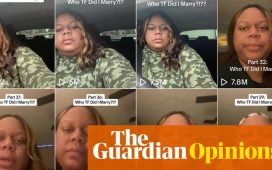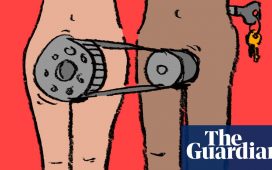“Breaking up is never easy …” goes the Abba song my dad loves, and breaking up during a pandemic is a special kind of hard. In January I broke up with my partner of almost three years. We were living together in a large share house, so as the one who did the breaking up, I moved out. I left a house that I loved, three beloved housemates who had seen me through the worst of the lockdown, and a hard-won routine that had worn itself like a pair of old shoes into my life.
I have a friend who refers to all romantic partnerships as “projects”. He means that when you commit to a life with someone (even in the short term) you’re agreeing to make decisions that support the other person; you have a vested interest in helping them achieve their dreams. He says partnerships that are successful are the ones that kill it at making their individual dreams align; a kind of mutually assured happiness.
But the breakup didn’t just mean the end of a project, it meant the end of an entire mindset – one that fantasised about spending my life with “the one” and having precisely three children and a hobby farm in Tasmania. I’d pictured summers in gumboots picking berries, and winters huddled by the fire with homemade mulled wine. This was a fantasy – but the act of verbalising it to each other and spending many afternoons trawling real estate websites for that perfect plot of land made it feel like a possibility. When our “project” ended, so did our pregnant future.
Being single in a world that favours coupledom means you have to do things a little differently. Buying property becomes doubly out of reach, expenses that were divided or shared – groceries, dining out, rent – now eat away at your income in double-time.
To give you an idea, I now pay $105 more in rent a week as a single. Last week I tracked my food expenses and the figure I ended up with gave me a small heart palpitation. Granted, I also get free rein of my bed (a luxury that almost makes the extra expense worth it), but on the 17th of every month I quietly curse the social and economic conditions that are hostile to singles.
Our social structures aren’t just hostile to singles, but to community and social unity. In a modern, western society characterised by competitiveness, among so many other atomising imperatives, coupledom operates as an extension of the individual.
Two people who decide to commit to one another become a single unit, and the outside world – anything that doesn’t exist inside their bubble – becomes the “other”. Even the marriage pact – which is hundreds of years old (well past its used-by date) still reiterates the slightly glib, but not insignificant, phrase “to the exclusion of all others”.
My friend’s theory that all romantic partnerships are a project – a mutual commitment to the primacy of the couple’s wishes and goals over all others – is, while optimising for couples all over, actually counterintuitive to the values of a community.
After the breakup, I fell into a safety net of friends who took turns letting me sleep in their beds, eat the food in their fridges, and cuddle their dogs. In the month it took me to get back on my feet and find a place to live, I was thrust out of the securing bubble of my relationship and into a temporary space of alternative reliance. Some might call it freeloading.
What I learned was that the dilemma of the single life, in which living unpartnered is positioned as – and in reality, often is – a disadvantage, can in fact open a door to a more communal, kinder way of living.
Social rhetoric is obsessed with self-reliance; we revere the mantras of self-care and self-love. But I think it goes further. Outside of our family and partner, most of us are uncomfortable relying on other people. Capitalism makes us think that everyone has a self-serving agenda, that genuine kindness is a limited resource. When you view the world through the logic of the market, where everything has or is a currency, the simple act of a favour can feel fraught, even terrifying.
But I’m realising that opening myself up to relying on others, although initially uncomfortable, helps me feel happier in the long term. In fact, the act of relying on people, in the face of a learnt mindset that says we can’t, feels like a radical choice.
During Victoria’s second lockdown, my housemates and I started a Sunday tradition borne of living in and through a crisis together. Someone would cook, and when the meal was ready we’d all gather around the TV to project photos from our phones or laptops on to the screen. We’d listen sleepily to the stories behind the photos, ask questions, let the images captivate and connect us.
Amid the ordeal of the pandemic, which had challenged each of us in different ways, it was a way we could relate to each other that went beyond simply sharing a space, a fridge, the $700 in rent.
We were a project too. It wasn’t to the exclusion of all others, but that project was, and is, as urgent as any other.













